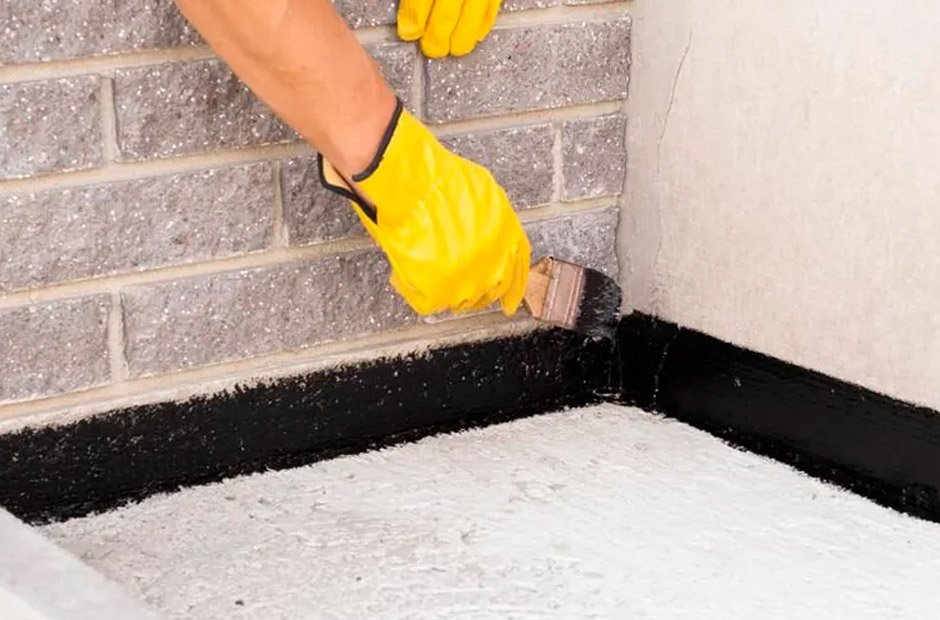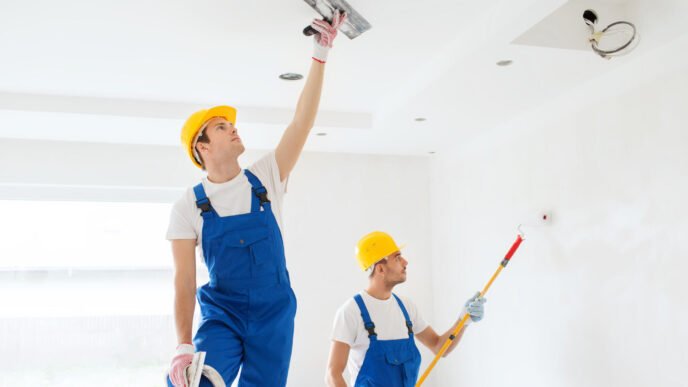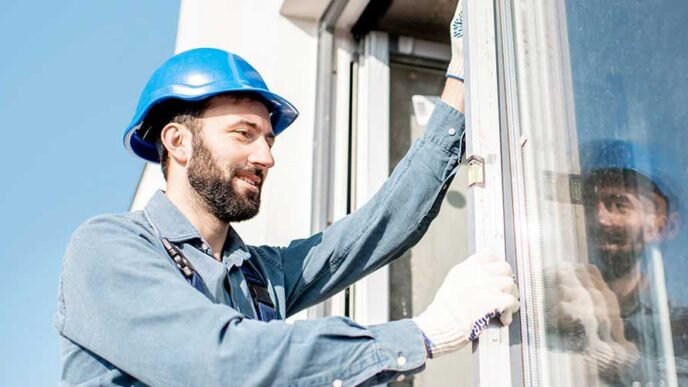A home with no noticeable waterproofing issues can command a premium price on the open market. In fact, some studies have pointed towards anything up to 25% greater value on completed sales. So it’s worth getting your ducks in a row before inspectors start calling.
While some cracks are purely cosmetic, others can signal underlying foundation wall problems that may compromise the stability of a home. Factors like shifting soil, poor drainage, and seasonal temperature changes can all contribute to these issues. Left unchecked, these cracks may widen, allowing water to seep through and weaken the structure further.
But what are home inspectors looking for before they compile their reports?
Visible Signs of Water
When you have basement waterproofing issues, it nearly always leaves a calling card. Home report inspectors will be keeping a close eye out for these tell-tale signs and some of them are more subtle than others.
Water Stains and Discoloration
Perhaps the most obvious sign that there’s been (and potentially still is) a problem is the presence of water stains and discolouration. Inspectors will cast a close eye across ceilings, walls and floors for those distinctive, irregular marks.
Whether it’s a slightly darker spot on a plaster wall or a dirty brown smear of discoloration, these stains should be a warning call. Without some proof that the issue has been addressed, the inspector and your potential buyers, will have to assume it’s possibly on-going.
Be particularly aware of brown stains around basement walls: this is a sure sign that water is getting in.
Efflorescence
If your concrete walls are coated in a white, powdery substance, that should be setting off major alarm bells. This is known as efflorescence and it’s caused by water penetrating through concrete then evaporating. The powder is actually minerals which have been leached from your wall and left behind as the water has turned to vapor.
Inspectors are all aware of what this is and what it means: water penetration. If they find it, it will certainly make it into the report.
Cracks In Foundations And Walls
Not every crack is a cause for concern, but they warrant keeping an eye on. Inspectors will use a variety of tools to decide which are noteworthy and which are ignorable. These include flashlights, moisture meters and gauges. This will tell them exactly how severe a crack is and what kind of impact it’s having in terms of water intrusion.
As a general rule of thumb, vertical cracks are less concerning (unless they’re damp, growing or particularly wide) than horizontal. This is because horizontal cracks are often caused by hydrostatic pressure from the waterlogged surrounding soil. If this is the case, it can have all kinds of follow on effects and issues that will make it into the report.
Moisture Levels And Humidity
While you might be able to feel the humid air of a basement by just standing in it, sometimes it’s more subtle. By applying a probe moisture meter to your walls, an inspector will be able to take an accurate reading of how much moisture there is within the walls themselves.
If these levels are high, they’re a cause for concern even if there’s no visual impact at all. That water must be coming from somewhere after all.
Mold And Mildew
Any inspector worth their salt will be on the lookout for signs of mold and mildew growth. These fungal growths thrive in moist environments, so their presence is a key indicator of dampness to any inspector. With their potential impact on the health of the household, it’s no surprise that their presence is a major black mark (excuse the pun).
Even the presence of that stereotypical musty ‘basement odor’ may be enough to prompt an inspector to probe deeper.
Sump Pumps And Drainage Systems
It goes without saying that inspectors will be interested in your drainage systems. If they’re up to scratch, it’s a good bet that waterproofing related issues will be pretty minor. In particular they’ll want to look at:
- Sump Pumps. They’ll want to ensure that your sump pump is installed properly, functional and well maintained. They’ll want to know the age and the general condition as well as see some evidence of regular servicing.
- Drainage. Inspectors will want to be reassured of the good working condition of any drainage systems around your basement. This will include interior and exterior drains. They may even inspect them with a camera.
Where possible, an inspection should also take in the state of your home’s grading. This is so the report can reflect the possibility of water pooling against your basement walls accurately.
A well-maintained drainage system and sump pump are crucial components in protecting your home from potential water issues. These systems work together to prevent water damage by efficiently directing water away from your foundation and basement.
Doors and Window Wells
It should come as no surprise that windows and doors in a basement will form part of the inspection. They are, after all, basically holes in the walls.
Inspectors will want to be satisfied that window wells aren’t collecting water and that the fittings are sound. They’ll also look for collection of debris and to check that the window seals are intact and working.
When it comes to the doors, they’ll be looking for cracks, gaps and signs of water intrusion such as rotting or warped wood or staining.
Exterior Inspections: Gutters, Downspouts and Grading
While it may seem strange, some of your basements best defenses against water intrusion are located on the roofline or out in your garden.
Gutters and Downspouts
Inspectors will be keen to cast their eyes over your guttering and downspouts. These provide a vital part of any home waterproofing by conducting the rain which hits your roof safely away and not allowing it to pool at the base of your walls.
Inspectors will want to see that they’re clear and in good condition.
Grading and Landscaping
Another key thing inspectors will be looking at is the condition of the ground around your home. Grading aims to ensure that there is a slope leading up to your walls, avoiding pooling. If it’s not evident or it’s badly executed, it will go in the report.
Likewise, they may want to examine your landscaping and gardening efforts. While they may be keen horticulturalists, they’re actually checking for potential impacts on your basement. Certain soil types, positions of plants and other aspects of your garden can have positive or negative effects on waterproofing efforts.
Home inspections are a vital part of the buying and selling process, but knowing what the inspector is looking for means they needn’t be scary.












